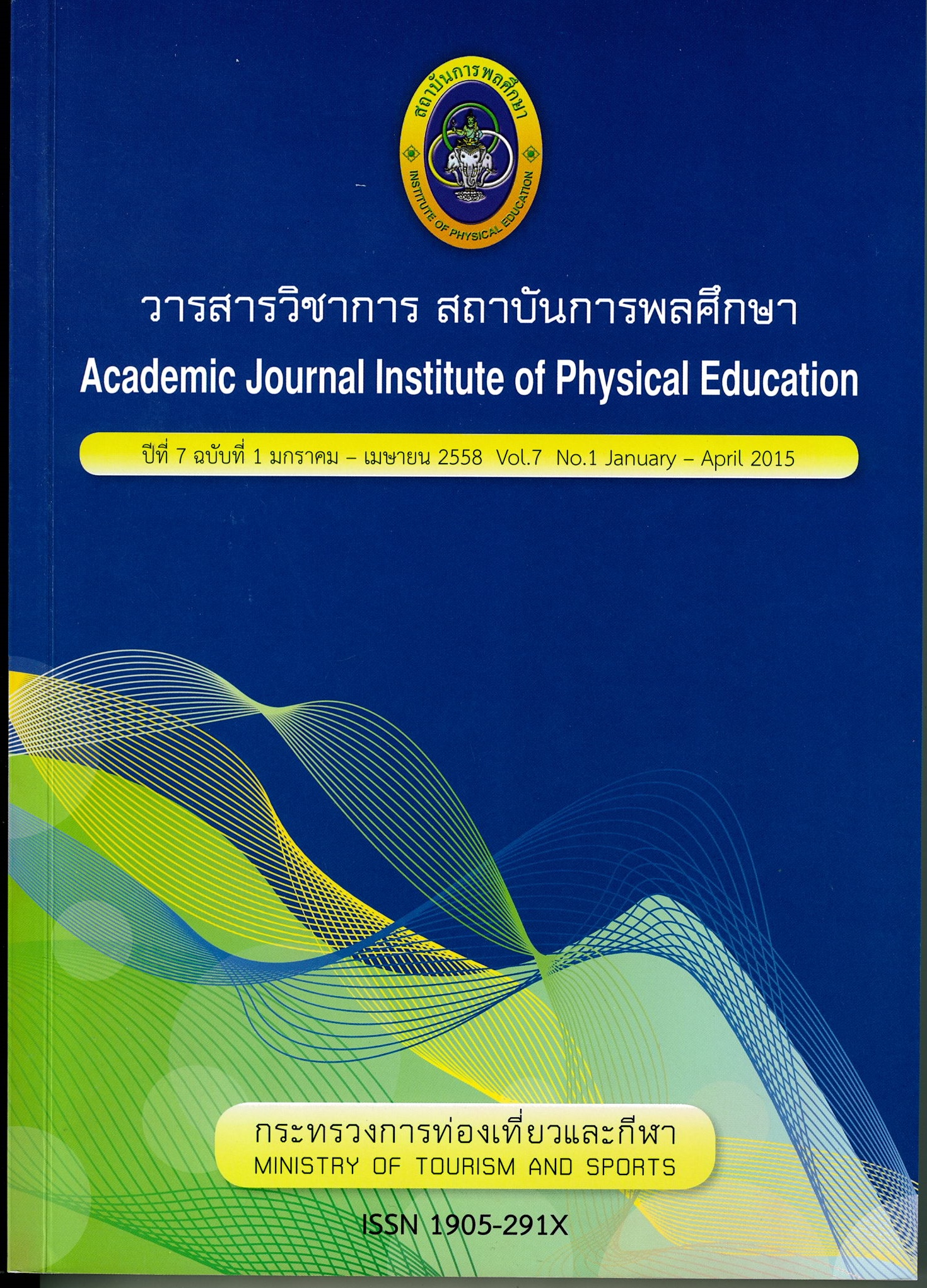The Strategic Leadership In Crisis Management And The Community Sustainable Flood Mitigation Cooperations : A Case Study of The Flooded Areas In The Provinces of Sing Buri, Angthong And Lopburi, 2003 AD.
Main Article Content
Abstract
The main purpose of this doctoral dissertation, entitled "The Strategic Leadership In Crisis Management And The Community Sustainable Flood Mitigation Cooperations : A Case Study of the Flooded Areas In The Provinces of SingBuri, Angthong And Lopburi, Thailand, 2013 A.D.," is to study the crisis management strategy of the flood mitigation government leaders in the provinces of SingBuri, Angthong And Lopburi, in performing the flood mitigation relief missions with the local leaders, by utilizing the people-centered
administrative styles, certainly by focusing on the hand-in-hand cooperations and two-way communications for sustainable crisis reliefs and future flood preventions.
Methodologically speaking, the study employs both the qualitative and quantitative researches in this academic attempt. In addition, mixed methods research and documentary research have also considerably been implemented. Besides, the research of the qualitative and intensive in-depth interviews of 53 cases key informants of outstanding executives from all sectors of administrative, academic, economic and social sectors, specifically from the Government, the Parliament and top-medium echelon experts in water management and flood mitigation, both at the national and provincial levels, have meticulously been conducted. In addition, the quantitative research by questionnaire samplings of 500 cases strategic leading regional and local leaders, who have been assigned to overlook the flood mitigation crisis management, have been carefully distributed and academically analyzed.
The research findings reveal the facts that, with regard to the strategic leadership in crisis management of these talented provincial and local personnels in the watershed areas concerned, especially with regard to the flood mitigation missions, it is imperative to handle the crisis situations, arising from the disastrous floods and related perils, i.e., infected diseases, famines, homeless and sudden evacutions, with great care and also with non-toxic manners, mutual respects, self sacrifices, egalitarian civic participation, as well as highly technical and precise decision making.
In conclusion, with respect to the panicking nature of crisis management leadership, especially when it concerns with 'the life and death' flooded situations of the mass of local villagers, the best strategy for both the rescuers and the sufferers is to voluntarily pave the ways for unified flood mitigation actions, full of mutual respect, empathetic cares for all victims affected, reasonably hoping to lessen their grievances. In ler for the state and community crisis management leaders, in charge of flood mitigation missions in the areas concerned, to be able to successfully manage the disastrous flooded situations, should they happen again in the future, they imperatively have to open up more spaces for public participation from all social sectors. Together, all parties concerned will have to put more attention at cultivating the physical and mental readiness in turbulent moment all along with the intense life guard socialization for all citizens, so that they can survive and live happily in times of future water management crises.
Therefore, the "Research Model" of this doctoral dissertation can be summed up as the following: From The “Desperate Panicking Crisis Relievers" To "The Empathetic And Norn-Toxic Saviours”
Article Details

This work is licensed under a Creative Commons Attribution-NonCommercial-NoDerivatives 4.0 International License.
The published article is a copyright of the Academic Journal of Thailand National Sports University. The passage appeared in each article in this academic journal is a perspective of each author which is not related to the journal. Each author is required to be responsible for all components of his/her own article. If there are any mistakes, each author must be responsible for those mistakes on his/her own.
References
กาญจน์ซนิษฐา เอกแสงศรี. (2553). ภาวะผู้นําการบริหารในภาวะวิกฤติ และยุทธศาสตร์การบริหารจัดการสาธารณภัยด้านน้ํา เพื่อความมั่นคงของมนุษย์ยุคใหม่ : ศึกษาเฉพาะกรณีจังหวัดในเขต พื้นที่ลุ่มน้ําภาคกลาง (ลพบุรี พระนครศรีอยุธยา และนครนายก) ของประเทศไทย พ.ศ. 2553 ดุษฎีนิพนธ์ หลักสูตรปรัชญาดุษฎีบัณฑิต สาขาภาวะผู้นําเชิงยุทธศาสตร์ความเป็นเลิศ มหาวิทยาลัยราชภัฏสวนดุสิต.
สถาบันน้ําเพื่อความยั่งยืน สภาอุตสาหกรรมแห่งประเทศไทย. (2556). ผู้นําด้านการบริหารจัดการทรัพยากรน้ําที่ยั่งยืน หน่วยงานร่วมภาครัฐและเอกชน, วารสารสถาบันน้ําเพื่อความยั่งยืน, 2 (5) , 7-8.
Yamane, Taro. (1973). Statistics An Introduction Analysis. 3rd ed New York: Harper and Row Publishers


